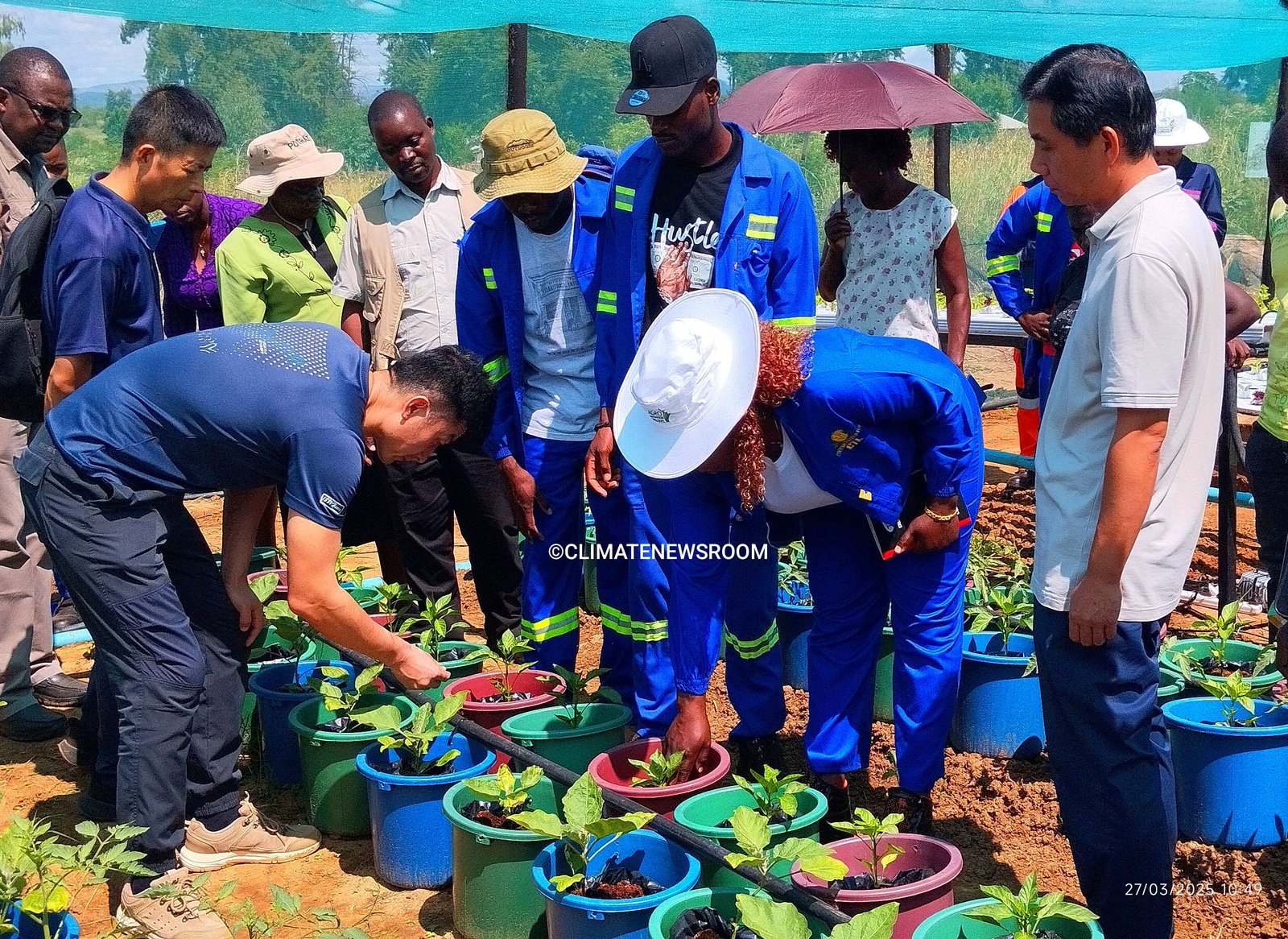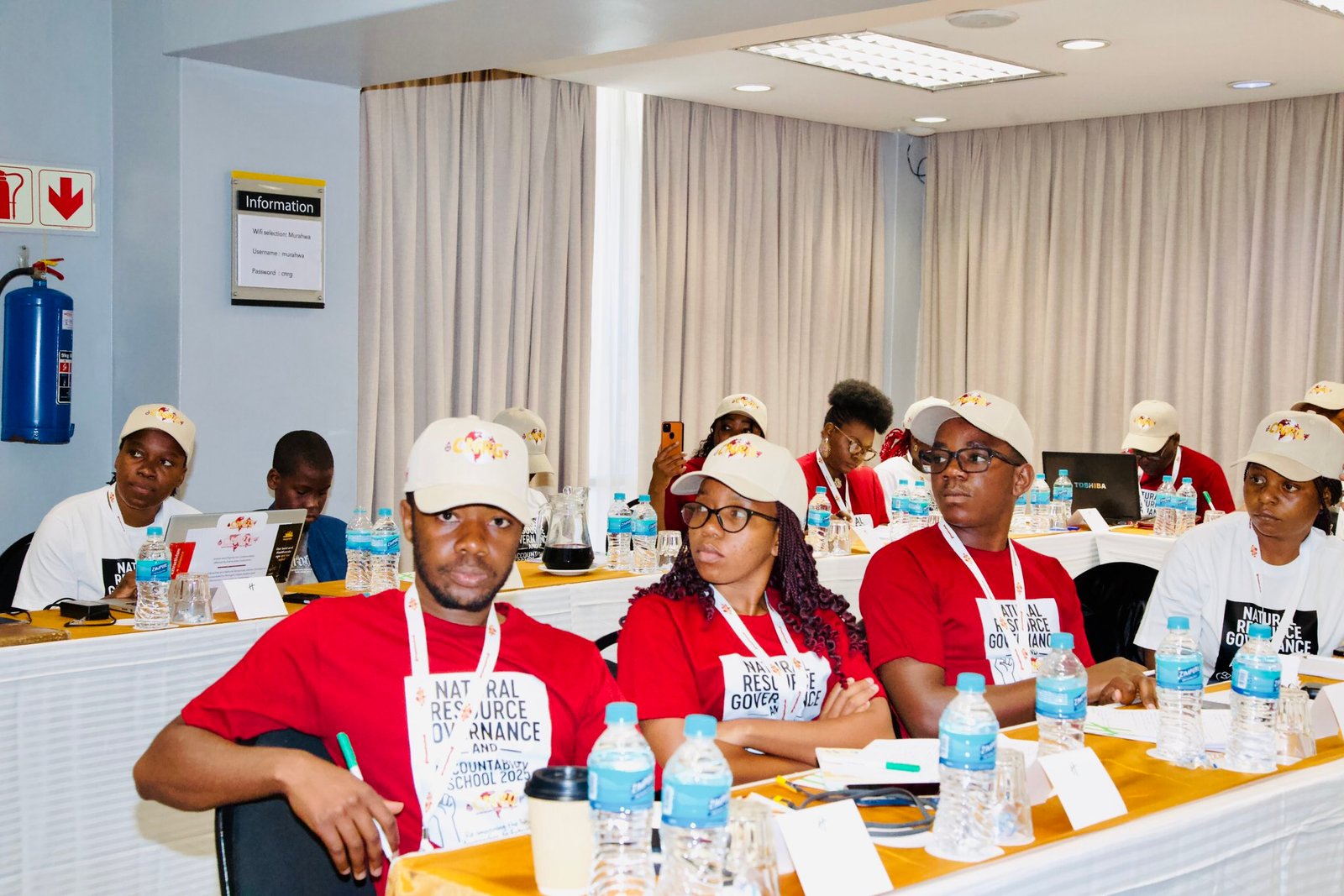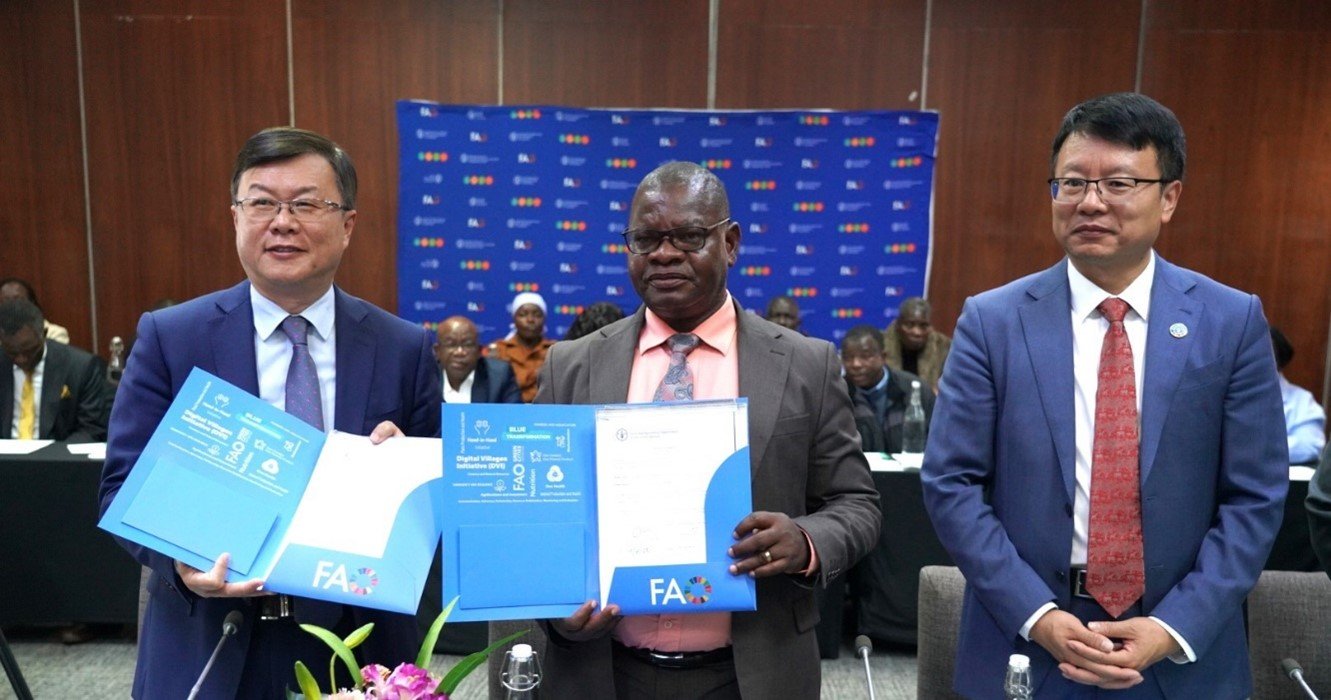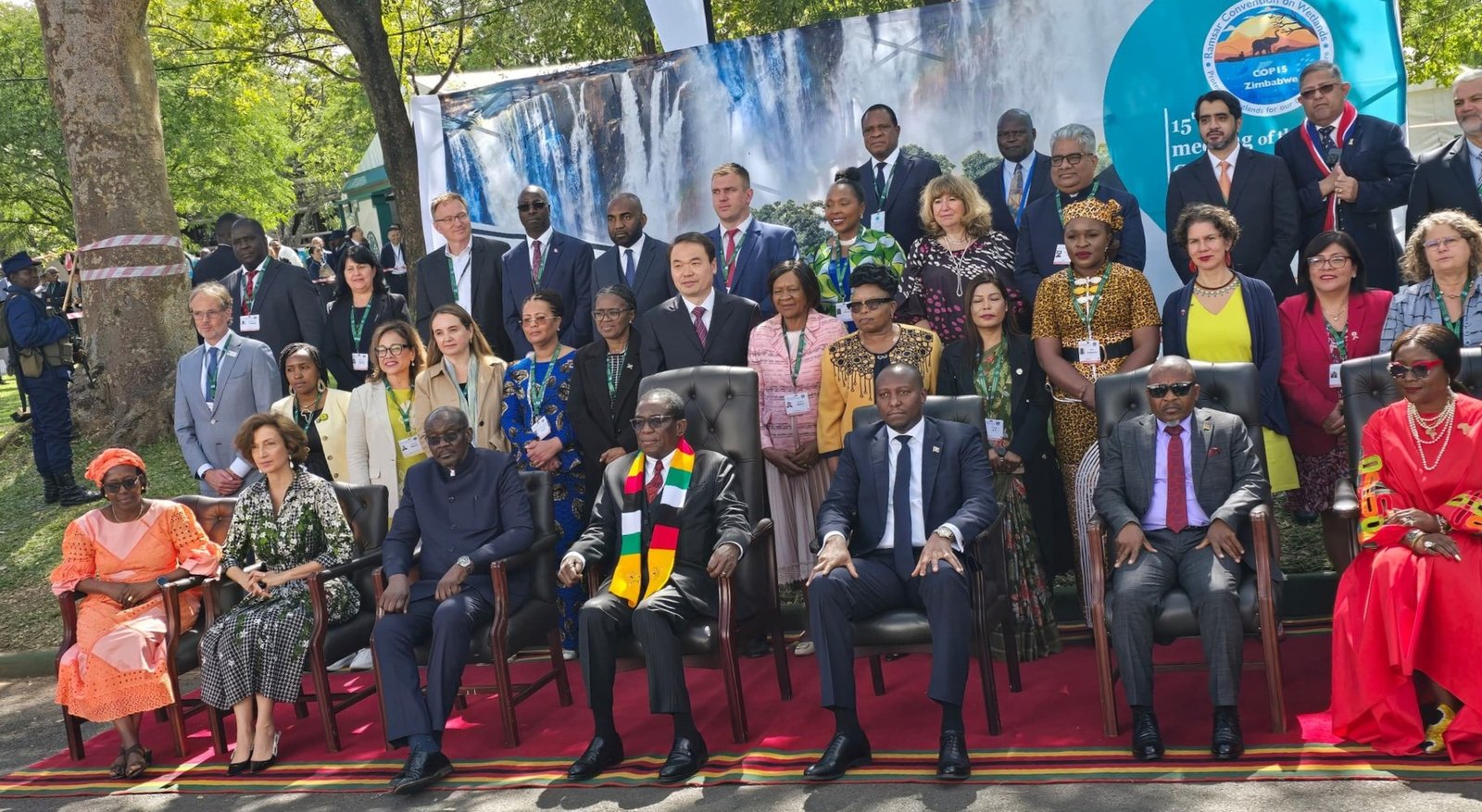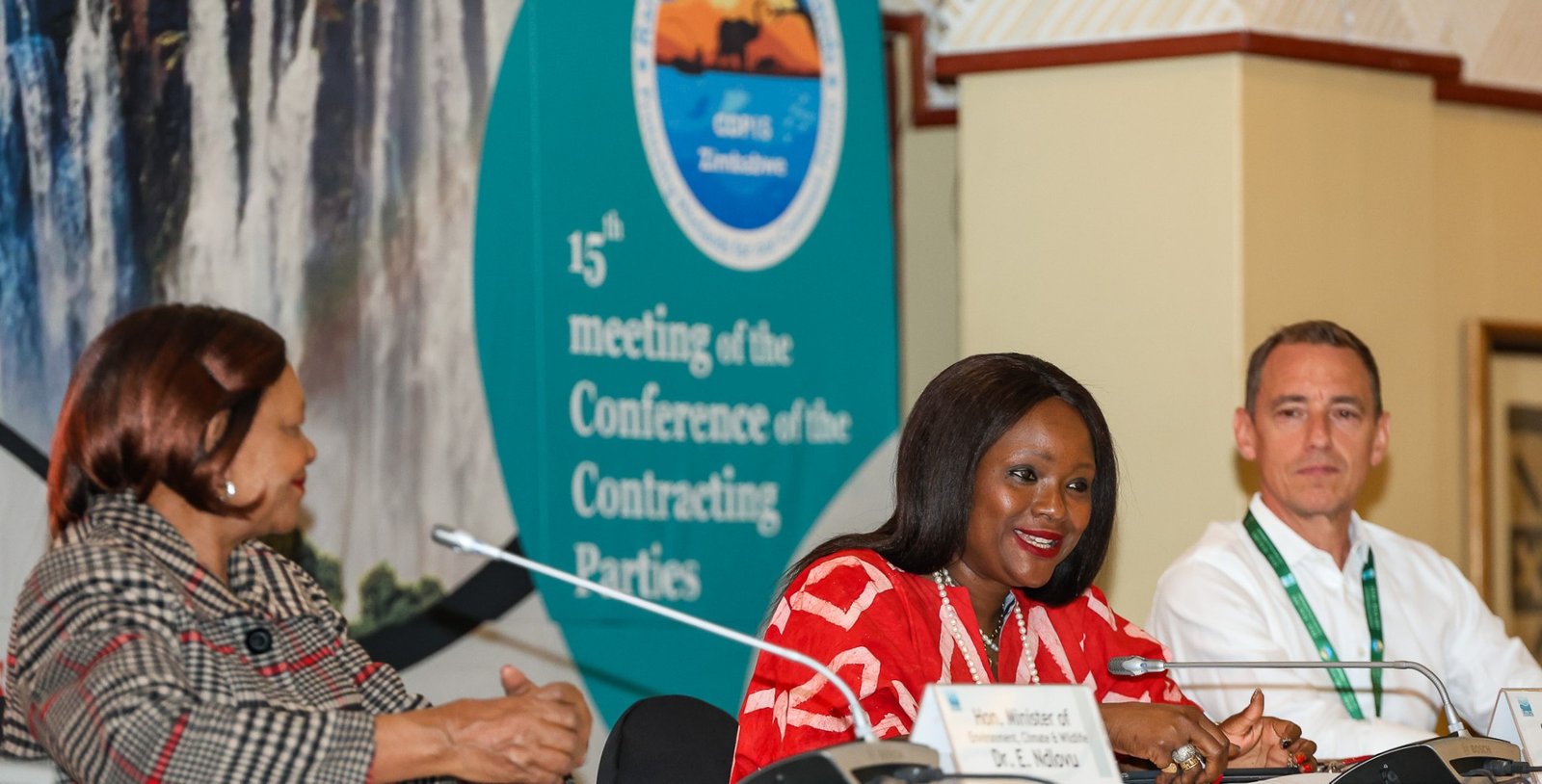Shamva Agricultural College has turned to smart agriculture in line with the current global push to boost agricultural productivity, food security and climate change mitigation.
During a tour of the facilities, the Ministry of Lands, Agriculture, Fisheries, Water And Rural Development lead by Dr. Jotam Dondofema and a group of Chinese agricultural experts from China Aid explored the college’s climate-smart hub before delivering a guest lecture on how to prevent transmittable diseases such as avian influenza, a viral infection that spreads in birds, cows and other animals.
Dr. Jotam Dondofema, the Director of Agricultural Education in the Ministry of Lands, Agriculture, Fisheries, Water and Rural Development, emphasized the importance of the relationship between the Zimbabwean government and the People’s Republic of China. He stated that this partnership aims to enhance agricultural practices and boost agricultural yields in Zimbabwe.
“Our collaboration with China Aid is focused on improving how we approach agriculture to increase our yields. We are learning from each other and sharing knowledge. The technologies we implement in our communities are being exchanged with them, and together, we explore ways to refine these innovations in line with our national vision for appropriate technology. When they introduce new technologies, we assess them to determine how best they can be adapted to Zimbabwe’s specific needs,” said Dr. Dondofema.
Dr Dondofema said the core goal of this education program is to address climate change by promoting climate-smart agriculture. A major challenge in farming today is rising costs, largely driven by reliance on expensive chemical inputs like fertilizers and pesticides. Through smart agriculture, the aim is to reduce expenses by minimizing chemical use, adopting sustainable practices, and building resilience against climate impacts.
“Climate change is the primary issue we aim to tackle through the education you see here. One of our goals is to reduce the factors that make farming more expensive. With climate-smart agriculture, we want to minimize the use of chemicals, such as fertilizers and pesticides,” He said.
The China Aid team leader, Zhao Ke said China-Zimbabwe agricultural cooperation programs have been in place since 2009, spanning over 15 years. The Chinese government has sent six batches of agricultural experts to Zimbabwe to collaborate with the Ministry of Agriculture, with the current team consisting of seven experts. The team specialize in poultry, pig farming, veterinary services, irrigation, and cattle management. These initiatives aim to improve the livelihoods of smallholder farmers.
“Agriculture is the foundation of the national economy, and agriculture techniques play a crucial role in the agriculture economics. Our training course provides learning opportunities for participants to improve their skills in the new technologies.”
“The primary focus in Zimbabwe is to enhance local farmers’ technical skills, policy consultation, establish agricultural demonstration centers and provide capacity-building training in rural communities. Our main job here is doing a model village with the local government and Ministry of agriculture,” he said.
THE China Aid agricultural experts have already established two agricultural demonstration centers in Zindi village, Shamva and aimed at equipping smallholder farmers with skills in crop and manure production and the second one located in Murombedzi, Zvimba, focuses on supporting farmers in rabbit and indigenous chicken production.
“We have two model villages, one in Zvimba, Mashonaland West, and the other in Shamva, Mashonaland Central. In these villages, we are assisting farmers in establishing farmers’ clubs. In Zvimba, farmers are breeding chickens and developing a hatchery. In Shamva, we have drilled three boreholes to address the water shortage, benefiting schools, livestock, and irrigation for the land. We want the land in Shamva to be farmed year-round, not just during the rainy season. To achieve this, we have facilitated the implementation of an irrigation system.”
Shamva Agricultural College’s acting Principal, Mr. Paxton Nyariri, expressed his satisfaction with the ongoing cooperation between Zimbabwe and China, particularly in the education area of preventing transmittable diseases in animals such as avian influenza.
The partnership is part of broader initiatives aimed at enhancing public health and agricultural practices in Zimbabwe.
Mr. Nyariri took the opportunity to introduce the innovation hub, which aligns with the government’s directive on Education 5.0. This initiative is centered on a heritage-based philosophy aimed at shaping future technology through innovation and industrialization. The innovation hub is designed to foster a culture of entrepreneurship and practical skills among students, enabling them to create solutions that address real-world challenges.
“Our main agenda is to ensure that the students we are nurturing here are equipped to start their own businesses when they leave, rather than simply looking for jobs. We aim for them to become entrepreneurs who can employ other youth.”

